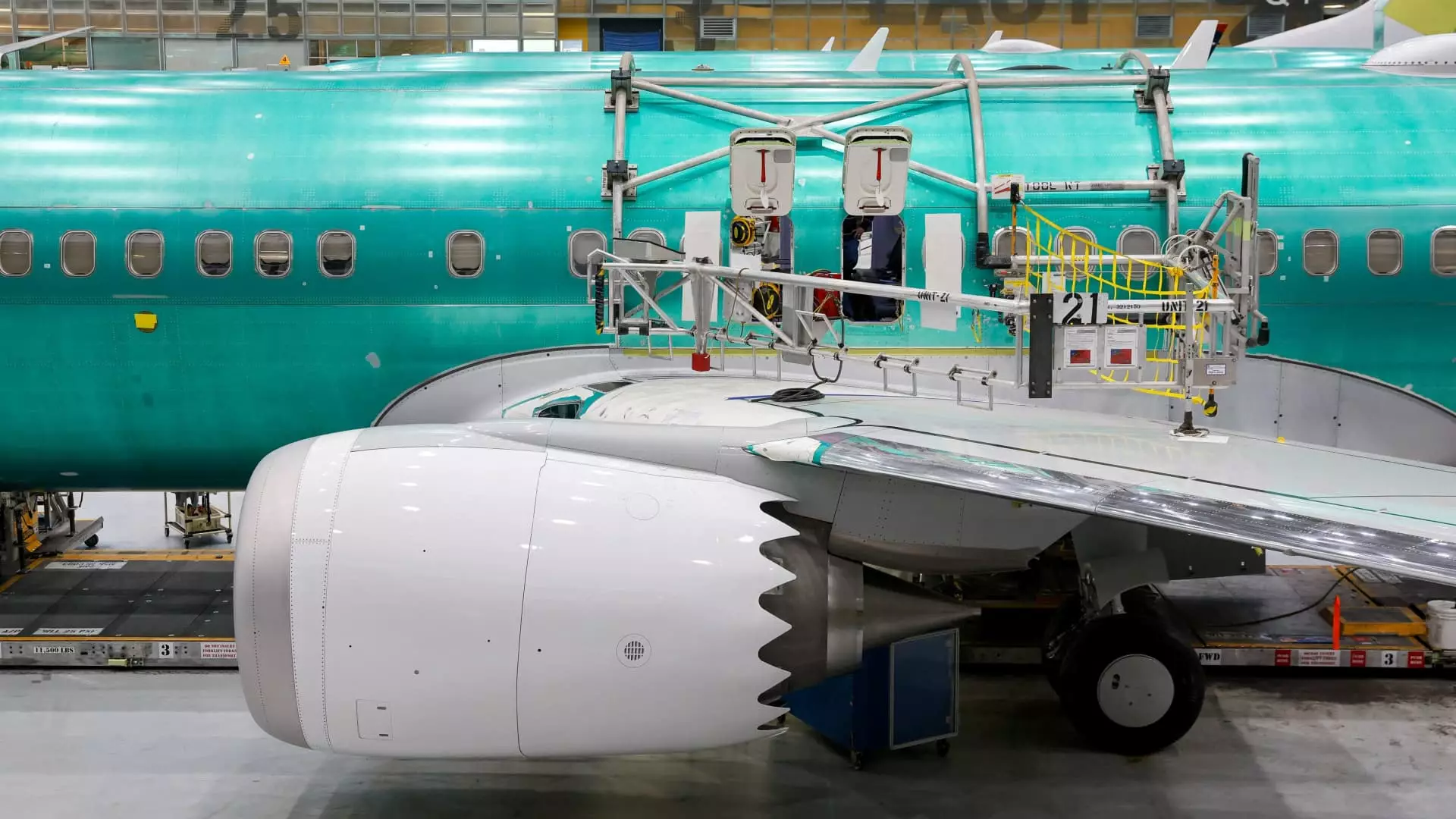Boeing, one of the largest aerospace manufacturers in the world, endured a year filled with challenges and introspection following a safety incident in 2022. The crisis was ignited when a fuselage panel detached mid-flight from an Alaska Airlines Boeing 737 Max 9, forcing the pilot to make an emergency landing. Although no passengers were seriously injured, the incident raised serious questions about Boeing’s manufacturing processes and quality control. A preliminary report from the National Transportation Safety Board revealed that key bolts had been omitted during production, underscoring a significant lapse in safety protocols that has plagued Boeing since its troubled history with the 737 Max model.
The ramifications of this incident were severe, resulting in a more than 30% decline in Boeing’s stock value over the past year, a stark contrast to the substantial gains experienced by the S&P 500. Investors are understandably wary, as Boeing continues to grapple with reputational damage stemming from its previous failures, especially those leading to fatal crashes in 2018. The company’s struggle to regain market trust is compounded by its poor financial performance, with no profits recorded since 2018.
Leadership Changes and Strategic Shifts
In response to the mounting crisis, Boeing’s leadership structure underwent significant changes. A new CEO was appointed to guide the company towards recovery. Under his management, Boeing has pledged to elevate its commitment to quality through new training initiatives aimed at factory workers, many of whom are relatively new to the company. By instituting random quality audits and enhancing oversight at production facilities, Boeing aims to ensure that every aircraft leaving its factories meets stringent safety standards.
Furthermore, Boeing has recognized the need to address “traveled work” — a term that describes the disorganized assembly line where tasks are not completed in the intended sequence, which can lead to defects. Alongside feedback from employees garnered from management meetings, these corrective measures signify a responsive approach to rectifying past mistakes, a crucial element in re-establishing trust with both consumers and regulatory bodies.
The Federal Aviation Administration (FAA) has intensified its oversight of Boeing, imposing stricter regulations and capping production of its 737 Max jets following the alarming incident. FAA chief Mike Whitaker’s statements underscore a necessity for a profound cultural change at Boeing – one that prioritizes safety above profitability. Whitaker’s assertion that transforming Boeing is beyond a one-off effort highlights the long-term commitment required to rebuild a culture grounded in safety and quality.
The FAA’s pronounced involvement raises the stakes for Boeing, albeit with the understanding that sustained effort on the company’s part is essential. As quality control issues and the shadow of past tragedies continue to loom, the need for systemic improvements has never been more critical.
With more than $30 billion lost since 2019, Boeing’s financial health is a looming concern. To stabilize the company, Boeing successfully raised billions in funds just last fall. This financial injection is vital for mitigating ongoing operational hurdles and ensuring the company can meet demand without succumbing to quality issues that plague its recent history. In an aggressive move to refine its operational capacity, Boeing also announced a 10% workforce reduction, signaling a shift toward focusing more intently on its core aviation capabilities rather than a broad array of businesses.
Despite rising skepticism, industry leaders express cautious optimism about Boeing’s direction under the new CEO, particularly regarding his approach to addressing underlying issues. As Boeing recalibrates its operations to emphasize quality, industry executives like Bob Jordan of Southwest Airlines, a key Boeing customer, have acknowledged that although it is too early to claim a turnaround, there appears to be a genuine shift toward substantive change.
Navigating through this challenging period requires a resolute commitment from Boeing’s leadership. The road to recovery is laden with obstacles, but the company’s newfound focus on safety, quality, and systematic improvements offers a glimmer of hope. As Boeing endeavors to restore its reputation and reinforce its market position amidst intense competition from Airbus, the effectiveness of its strategies will ultimately determine whether it can rise from the ashes of past missteps. The overarching challenge for Boeing remains not just to recover financially, but to ensure its commitment to quality is unwavering, thereby safeguarding the trust of its customers and stakeholders for years to come.

